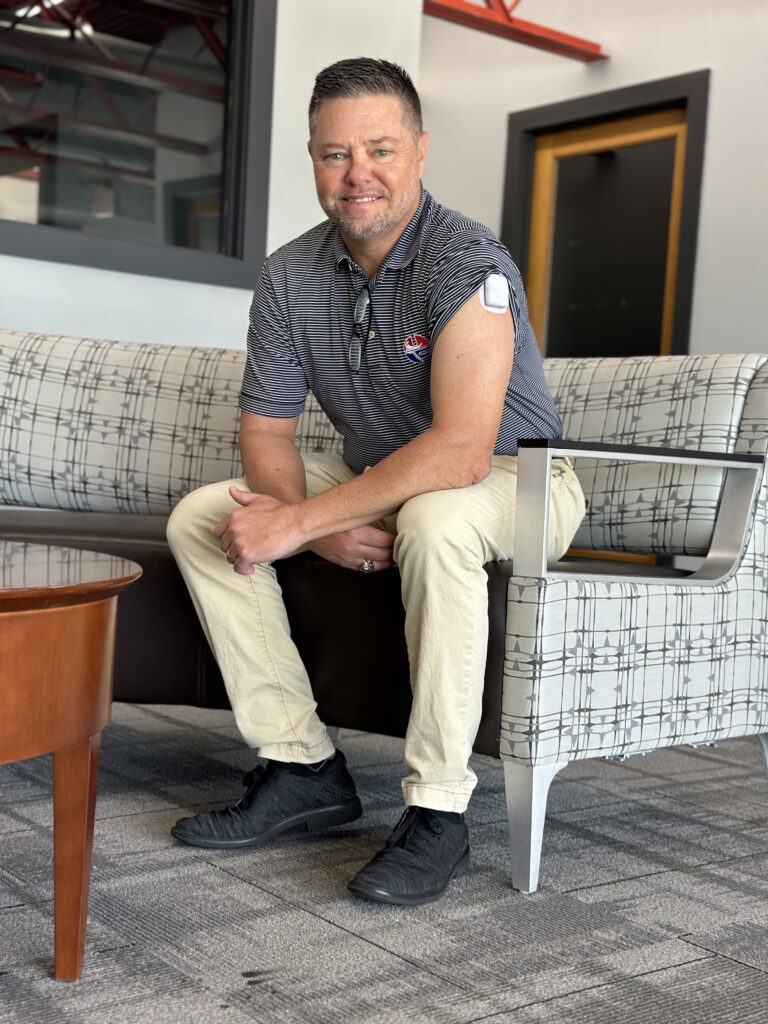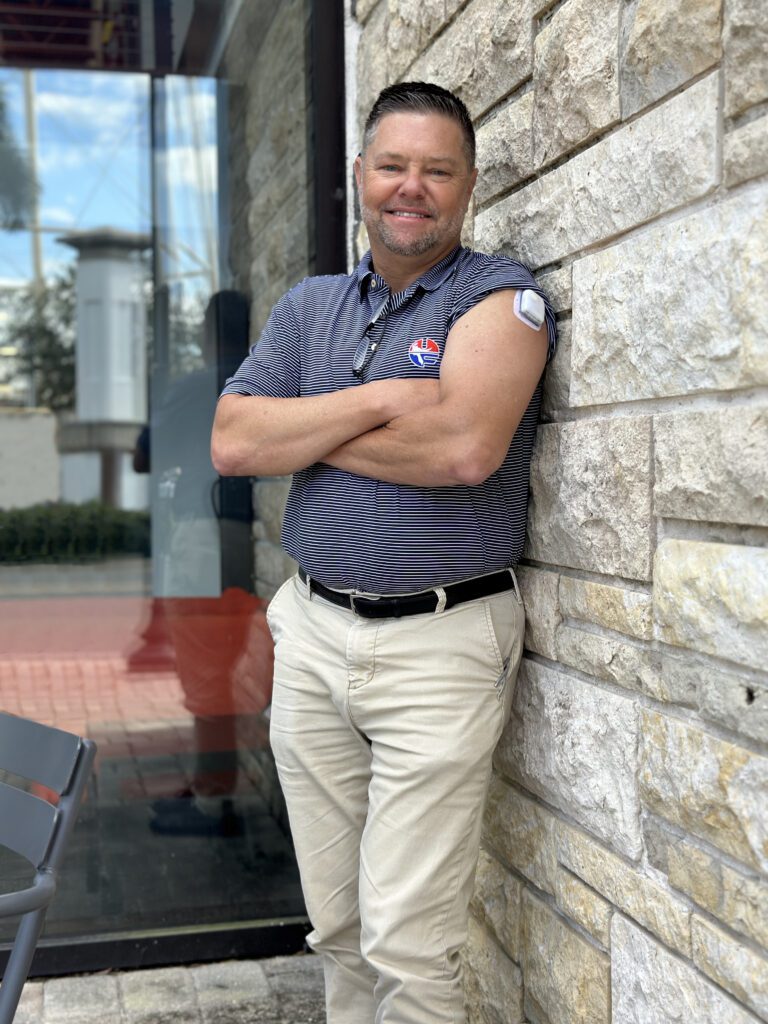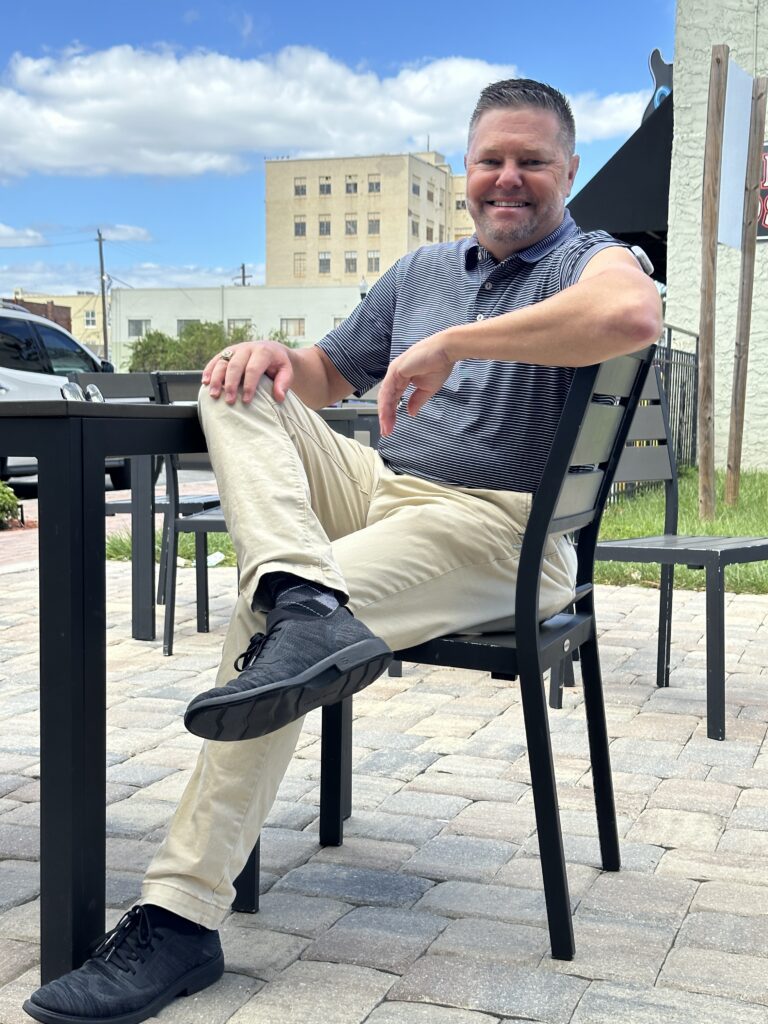Bo Boyte’s T1D Experience Turned Him From a Boy Who Hid His Disease to Outspoken Advocate
by RYAN MILEJCZAK
For many, being diagnosed with type 1 diabetes before you can even walk might seem like a monumental life change. But for Bo Boyte of Lake Wales, who was diagnosed when he was only 13 months old, that early diagnosis means a life with T1D is pretty much all he’s ever known. While most kids were learning their colors and how to count, Boyte was learning about blood sugar tests and how to take insulin shots.
“I was in a pretty bad physical state, and the doctor’s couldn’t figure out what was wrong with me,” recounts Boyte. “My mother took me to several doctors and finally, an ER doctor in Lake Wales asked the nurses if they had tested me for diabetes.”
That one question led to the answer doctors needed.
“After a quick urine test, I started my journey with type 1 diabetes,” he says.
For Boyte, the biggest challenge growing up with type 1 diabetes wasn’t managing the condition itself, but rather fitting in and having a normal social life as a young boy.
“Looking back, the biggest mistake I made was trying to keep it away from everybody,” Boyte recounts. “I didn’t want anybody to know something was wrong with me or that I was different from anybody else. And things like wanting to spend the night at a friend’s house got to be difficult. Well, my mother said, until you can manage your diabetes yourself, you can’t go spend the night. So, at a pretty early age, I learned how to do all my shots and tests. You could say my mother used that to her advantage to get me to take ownership of my condition.”

Changing Times
Over the past 50 years living with his condition, Boyte, who works in Winter Haven, has seen major changes in how type 1 diabetes is managed.
“In 1975 or so in Shands Hospital, the endocrinologist there recommended diet and insulin for management of diabetes. That’s it, and no exercise, which was sort of a no-no because you could break your leg and things like that,” he says.
Boyte’s father, an athlete himself, decided to have his son exercise despite these recommendations, and Boyte still keeps up with his exercise regimen to this day. In fact, he credits his active lifestyle for the fact that he takes less insulin than the average type 1 diabetic.
The medications and technologies used to treat type 1 diabetes have also changed significantly over the past 50 years.
“I used to have to do six to 10 shots a day of pork insulin growing up and carry a thermos with me everywhere to keep it cool at all times. And back then, testing was done with urine, which wasn’t very accurate,” explains Boyte. “Then, it was blood samples and synthetic insulin, which meant fewer side effects and more accurate blood sugar testing.”
The constant improvements made a big difference for Boyte and how he was able to manage the disease.
“Over the last 10 or so years, I started using a pump,” he says, “and now I’m using the Omnipod, which has a continuous glucose monitor and automatically dispenses insulin. With the technology today, I almost feel like I have a working pancreas just stuck to my arm. It’s made the management just so much easier and better.”

Transformation
Boyte’s lifelong journey has taken him from being a kid who felt he had to hide his condition in order to fit in to an adult who proudly wears his glucose meter and sees it as an opportunity to connect with others.
“It’s been huge for me to be able to help others, but also help myself by just being around other people dealing with the same thing,” Boyte says.
Today, he is an active member of Central Florida’s diabetic community, and he loves helping other diabetics and their families on their journeys.
“I help with the Tampa Bay Type One Diabetic Foundation in Tampa Bay with Nick Plott and Ashely Bell Barnett. They’ve also started a juvenile diabetic group that meets monthly here in Polk County, and I try to be as active as I can by speaking with the kids and the parents. The kids are usually handling it pretty well, but the parents not so much. So many times we’re just there to give them some peace and let them know the kids will be fine as long as they control it and take ownership of it, instead of allowing it to own them.”
Boyte left off with advice for type one diabetics and their families.
“First and foremost, it’s a marathon and not a sprint,” he explains.
“In the beginning, you have to take every day as it is. You’re figuring things out, what food does to you, how you react to the insulin, those sorts of things. Don’t get discouraged. The other thing is, you can’t just sit there and look at all the negatives. You need to talk about the positives, too. Maybe you can sneak out of math class for a snack because your blood sugar is low, or maybe you get a free fastpass at an amusement park. Really focus on the positives.”
His final piece of advice comes from a lifetime of his own experience.
“It’s important to make sure that children are learning to control and manage their diabetes at an early age,” he says. “It will only help them in the long run.”
